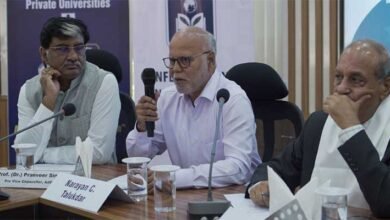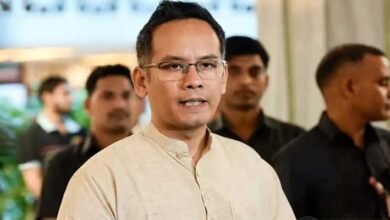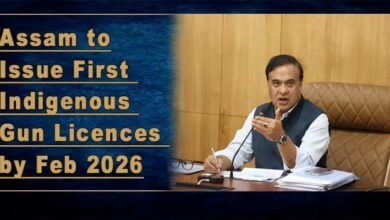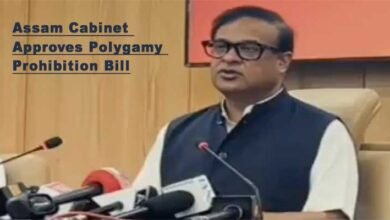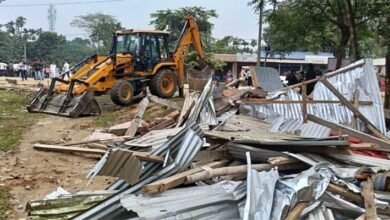Assam Begins Special Revision of Voter Rolls
Assam launches a statewide Special Revision of electoral rolls to ensure accurate voter lists ahead of the 2026 Assembly elections, balancing citizenship concerns with electoral transparency.
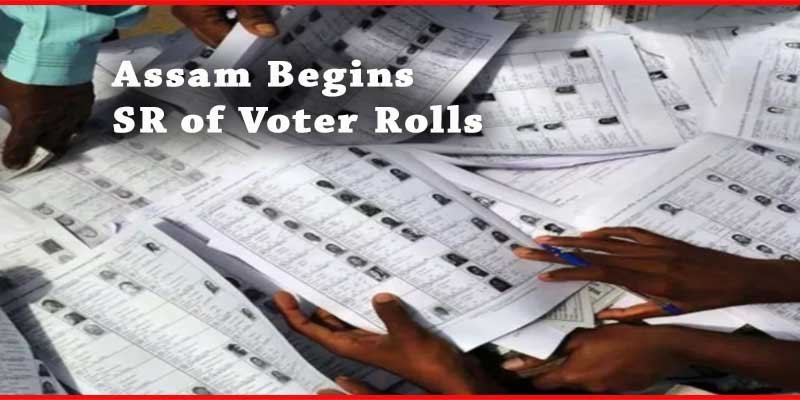
GUWAHATI: Assam on Saturday launched the Special Revision (SR) of electoral rolls across all 29,656 polling stations in a statewide effort to prepare clean, accurate and transparent voter lists ahead of the 2026 Assembly elections. Booth Level Officers (BLOs) began door-to-door verification, marking the first large-scale revision tailored specifically for the state.
The Election Commission of India (ECI) ordered the exercise on November 17, describing it as a customised mechanism suited to Assam’s unique demographic and citizenship background. The revision uses January 1, 2026 as the qualifying date and aims to enroll all eligible voters while removing duplicate, shifted or deceased entries.
Also Read- Bodo Groups Protest at Jantar Mantar
Unlike the Special Intensive Revision (SIR) currently underway in 12 other states—which involves detailed re-enumeration and recently led to the deletion of nearly 65 lakh names in Bihar—Assam’s SR is an “upgraded” version of the routine Special Summary Revision (SSR). The process relies on pre-filled verification registers instead of fresh enumeration forms, enabling targeted corrections at the household level such as blurred photographs, zero house numbers, or “non-human” images that have previously appeared in the rolls.
Officials note that the SR framework is shaped partly by the still-unfinished 2019 National Register of Citizens (NRC), which excluded 19.6 lakh of 3.3 crore applicants but has remained unnotified due to data security and legal complications. The NRC’s finalisation is now expected by August 2026, after which Assam may undergo a full SIR.
Also Read- Nationwide Wave of Youth Congress Protests Intensifies Over Alleged Electoral Irregularities
Chief Electoral Officer Anurag Goel stressed that the SR poses “no threat to existing voters,” adding that the state’s 2.4 crore registered voters will retain their status unless they request changes. Families displaced from eviction drives, particularly in border districts, may re-enroll at new addresses using Form 8, in line with the citizenship provisions of the 1985 Assam Accord.
The exercise will also rationalise polling stations by lowering the cap from 1,500 to 1,200 voters per booth, resulting in an estimated 1,826 new polling stations to improve accessibility and reduce overcrowding.
Key Timeline for the Special Revision
- Pre-Revision (Nov 18–21): Training, printing of forms
- Verification (Nov 22–Dec 20): BLO visits, polling station rationalisation
- Draft Preparation (Dec 21–26): Compilation of integrated draft roll
- Draft Publication (Dec 27): Release of draft rolls
- Claims & Objections (Dec 27–Jan 22): Filing period; weekend campaign days
- Disposal (Up to Feb 2): Resolution of claims
- Final Roll (Feb 10): Publication ahead of the elections
Voters can verify details through the CEO Assam website or the NVSP portal using either their EPIC number or name. Forms 6 (new registration), 7 (deletions) and 8 (corrections or migration) may be submitted during this period, and appeals can be filed with respective Electoral Registration Officers.
Chief Minister Himanta Biswa Sarma welcomed the initiative, calling it a step towards “clean, updated and accurate electoral rolls for all eligible citizens.” He added that the state government will extend full cooperation to complete the revision in a transparent, time-bound manner.
However, the process has drawn political reactions. AIUDF MLA Rafiqul Islam expressed concern that unlike the SIR—where the verification window ends well before draft rolls—Assam’s SR framework allows enrollment up to two days before publication, which he claimed could enable “large numbers of RSS and BJP cadres from outside” to enter the voter list.
Responding today, Sarma dismissed the allegations: “This is between the Election Commission and the Congress party… If they have any problem, let them move to the Election Commission.” Opposition parties, including the Congress, have yet to issue a formal statement.
Analysts say the SR may act as a temporary bridge until a full post-NRC revision, shaping voter demographics in tea-garden belts, migrant-affected districts and border regions—areas where citizenship continues to influence electoral outcomes.
As the state moves towards the 2026 polls, the ECI expects strong public participation to ensure high-fidelity electoral rolls. For assistance, voters may contact District Election Officers or visit ceoassam.nic.in.


